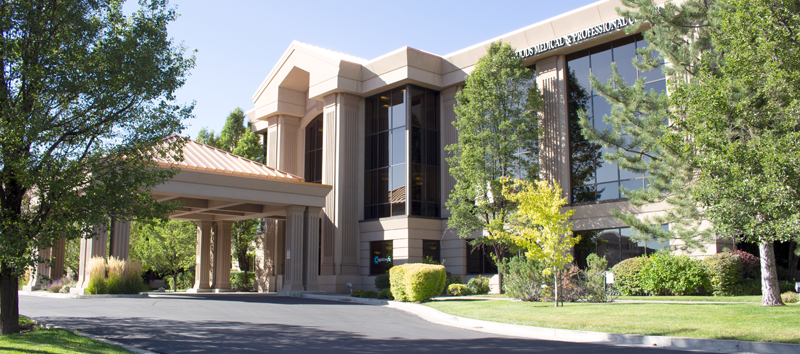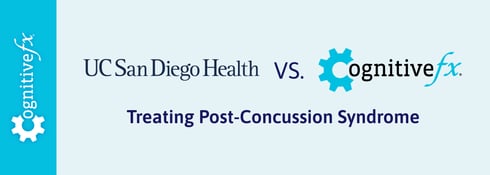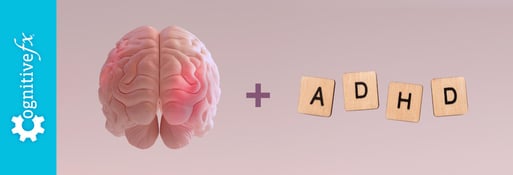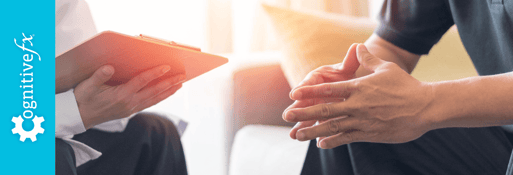After suffering a mild traumatic brain injury, you might expect to feel off for a few days before being able to function at your normal level again. However, a rapid return to normal is not the case for everybody. If symptoms like headache, dizziness, neck pain, fatigue, trouble concentrating, insomnia, or mood changes linger for weeks or months after your concussion, you may be suffering from post-concussion syndrome (PCS).
The issue at this stage is knowing where to find the right medical care to get diagnosed and treated for PCS. Not all physicians have the training and resources to support PCS patients in the way they need. Post-concussion syndrome requires specialized, cross-disciplinary therapy modalities that many providers just can’t offer. While options for patients in the U.S. and Europe are limited, we do list PCS treatment provider locations throughout the U.S. at the end of this post.
The best treatment program for post-concussion syndrome currently offered is at our clinic, Cognitive FX. We gather together experts in brain imaging and therapy to offer a multidisciplinary, intense treatment program for post-concussion syndrome. Our approach is designed to overcome the common problems in PCS treatment: siloed medical knowledge, therapy that isn’t varied or intense enough to induce recovery in the brain, and lack of diagnostic insight into which brain regions were affected by the concussion and how.
If you need additional support in a particular area (such as ongoing vision therapy or medication for post-concussion hormone problems), then local care providers can be extremely helpful.
In this article, we cover:
- What a PCS specialist is.
- What you should look for in a PCS specialist.
- How Cognitive FX goes beyond standard care options.
- Where you can find local PCS specialists in the U.S. by state.
Cognitive FX specializes in post-concussion syndrome treatment. Over 90% of our patients experience symptom improvement after just one week. To see if you are eligible for treatment, sign up for a consultation.
What Is a Post-concussion Syndrome (PCS) Specialist?
.jpg?width=992&height=559&name=PCS%20near%20me%20(6).jpg)
The term “post-concussion syndrome specialist” describes any healthcare professional who has received training in the diagnosis and treatment of patients with PCS.
There are many types of physicians who might specialize in PCS, such as neurologists, psychologists, physiotherapists, and occupational therapists. (See this article for more information about what types of doctors treat head injuries and how they help patients.) Even amongst these healthcare professionals, however, not all are equipped to treat PCS. Here are some notes on the types of doctors that many patients visit early in their recovery journey:
- Primary care doctors (or pediatric doctors for younger patients) can request tests and bloodwork and may be trained to diagnose an acute concussion. They’re not usually trained to diagnose PCS. If your insurance requires referrals to visit a specialist, then you might need to see your family doctor first.
- Even neurologists may not have the necessary expertise in post-concussion syndrome. In fact, many are not aware that there are effective treatments for PCS. Neurologists often prescribe medications to alleviate certain PCS symptoms, such as post-traumatic headaches, but they don’t have the resources to address the root issues. Be very cautious when taking medication for post-concussion syndrome symptoms. Many meds are poorly tolerated by PCS patients and may make your overall symptoms worse. If you want to know whether a neurologist is the best option for you, read our post on how a neurologist can help with post-concussion syndrome.
- Sports medicine doctors often have good treatment programs in place for athletes, but their experience is mostly geared toward treating concussions in the early stages. Make sure that your sports concussion doctor or athletic trainer has expertise in rehabilitating patients with PCS if you’re seeing them months after a sport-related concussion.
How to Evaluate a Post-concussion Syndrome Specialist
.jpg?width=2000&height=654&name=PCS%20near%20me%20(5).jpg)
You probably need more than one concussion specialist involved in your diagnosis and treatment. For example, a neuro-optometrist can diagnose and treat PCS-related vision problems, while a sports medicine physician or physical therapist can diagnose vestibular dysfunction and provide vestibular therapy for PCS.
Instead of searching for individual specialists who can help with one aspect of PCS and receiving disjointed treatment, we feel the best option for patients is to look for a specialized post-concussion program that looks at PCS as a whole and that is capable of offering a coordinated and structured treatment plan.
So, what should you be looking for in a complete PCS treatment program?
- Good diagnostic practices
- Evidence-based treatment
- Multidisciplinary team
- Ways to measure success
- Post-treatment support
Good Diagnostic Practices
Specialists can diagnose you with PCS when your symptoms last longer than three months and other causes for the symptoms have been ruled out.
At the moment, there is no definitive medical test for PCS, so doctors have to rely on a variety of tests to diagnose this condition. Some of these include:
Symptom Questionnaire
Your doctor will most likely start by asking about the severity and frequency of your symptoms, usually with the help of a questionnaire such as the Post-Concussion Symptoms Scale (PCSS) or the Rivermead Post-Concussion Symptoms Questionnaire (RPQ). They vary slightly on the questions asked, but they essentially assess the presence of common PCS symptoms like balance problems, headaches, blurred vision, brain fog, and others.
Physical Evaluation
After asking you about your symptoms, your doctor will perform a physical examination, looking at aspects of your physical health like reflex response, vision tracking, balance, and hand-eye coordination.
Cognitive Evaluation
This exam looks at cognitive issues, such as brain fog, poor memory, difficulty focusing, or struggling with conversations. For example, to test your memory, your doctor may ask you to memorize a list of words and then check that you still remember them a few minutes later.
Psychological Evaluation
As PCS often leads to mental health problems such as depression and anxiety, your doctor will ask some questions about your mood, such as whether you’re experiencing trouble sleeping or if you feel down.
MRI or CT Scan
Sometimes, a PCS specialist requests a scan of the brain, such as a CT scan or an MRI scan. This is mainly to make sure that there are no other reasons for your symptoms, such as a stroke or a brain tumor. Standard MRIs cannot detect PCS. (CT scans can’t show PCS either, for that matter.)
How Cognitive FX Goes Beyond This Standard
.png?width=1999&height=1098&name=PCS%20near%20me%20(1).png)
At Cognitive FX, we follow a similar procedure to the diagnostic practices described above. We do, however, have one significant difference: Each patient undergoes a functional MRI designed to determine how their concussion affected their brain. This brain imaging scan is called functional NeuroCognitive Imaging (fNCI).
In a healthy brain, brain cells receive nutrients and oxygen from a network of blood vessels in the brain. The connection between these nerves and blood vessels is called neurovascular coupling (NVC). It allows neurons to ask for the right amount of resources at the right time and have them delivered to the right location. In PCS patients, this mechanism is disrupted. Depending on what areas of the brain are affected, it may lead to headaches, brain fog, difficulty tracking conversations, sleep disruptions, and more.
The fNCI scan assesses blood flow dynamics throughout 56 regions in the brain while the patient performs a series of cognitive tasks. fNCI also looks at communication between brain regions.
With the results from the scan, our team can find exactly what areas of the brain are affected by NVC dysfunction. Some patients have localized problems while others have a more widespread dysfunction throughout the brain. Knowing what’s happening with each patient helps us to treat their condition more accurately.
Overall, to diagnose PCS, we consider…
- The results from the brain imaging scan.
- What symptoms the patient is experiencing (using the PCSS questionnaire).
- How the patient performs during their physical, cognitive, visual, vestibular, and autonomic assessments.
- The patient’s mental health and wellbeing (assessed by our clinical psychologist).
Our therapists then use the results from all of the tests to design a custom-made treatment plan for each patient. We call our treatment Enhanced Performance in Cognition Treatment (EPIC treatment).
Multidisciplinary Teams
Treating PCS is a challenging process that requires a multidisciplinary team of healthcare professionals. Ideally, post-concussion treatment programs will offer access to a multidisciplinary team located in the same place, or at least have strong connections between different therapists. Larger concussion centers often have therapists in house, while smaller clinics tend to refer patients to the specialists they need.
Some of the specialists that you may encounter include:
- Family physicians/pediatricians
- Neurologists
- Psychologists and psychiatrists
- Neuropsychologists
- Physical therapists
- Occupational therapists
- Speech and language therapists
- Sleep specialists
- Nutritionists
- And more...
How Cognitive FX Goes Beyond This Standard
Our interdisciplinary team includes a clinical neuropsychologist, a neurosurgeon, a neuroradiologist, neuroscientists, clinical psychologists, neuromuscular therapists, cognitive therapists, occupational therapists, and others.
Crucially, patients don’t just attend one therapy session after another. Multiple therapies are often combined to enhance the result for the patient.
For example, our therapists may ask patients to balance on a Bosu ball (vestibular therapy) while tossing color-coordinated balls back and forth (physical therapy) and naming a food for each letter of the alphabet (cognitive therapy). This way, patients engage brain regions responsible for balance, hand-eye coordination, and memory at the same time.
Another example happens during neurointegration therapy, where patients combine visual and vestibular function by searching for and tapping letters of the alphabet positioned in a 3D structure.
Sign up for a consultation with the team at Cognitive FX.
.jpg?width=1999&height=1333&name=PCS%20near%20me%20(3).jpg)
Evidence-Based Treatment
There isn’t a “one-size-fits-all” option for PCS treatment. Specialists need to assess each patient and customize the exercises within each therapy offered to address their specific condition. If a clinic offers the same treatment and list of exercises to all types of patients, we consider that to be a red flag and recommend seeking alternative medical care. In other words, if a clinic offers the same therapy for many types of conditions (e.g., autism and head injury are treated the same) or if the same therapy exercises are used regardless of symptoms, you can likely find better treatment elsewhere.
Some examples of treatments supported by scientific evidence include the following:
Vision Therapy
Vision therapy is very effective to treat vision problems associated with PCS, such as difficulty with eye movements, dizziness and balance problems, blurry vision, double vision, and peripheral vision problems.
Further reading: Vision therapy after a concussion
Vestibular Rehabilitation
Vestibular rehabilitation helps patients overcome changes in the vestibular system, which controls sensory information about balance, motion, and spatial orientation. Vestibular therapy can be particularly helpful for PCS patients who are suffering from persistent dizziness, vertigo, or balance problems after a concussion.
Further reading: Vestibular therapy for concussion symptoms
Physical Therapy
Physical therapy can help PCS patients, especially those with problems in mobility and posture, pain, headaches, and certain vestibular issues. Ideally, patients should look for a physical therapist with training or who specialize in post-concussion rehabilitation.
Further reading: Physical therapy for PCS patients
Occupational Therapy
Occupational therapy can help patients develop strategies to manage symptoms, improve function at work or school, increase cognitive function, and maintain independence. The most effective occupational therapists for PCS have a special focus on improving cognition and vision.
.jpg?width=1999&height=1333&name=PCS%20near%20me%20(7).jpg)
Cognitive Therapy
Cognitive therapy is effective for patients who are struggling with cognitive skills, such as concentration and memory. For example, this therapy can help patients who are struggling to manage paying bills, take their medication on time, or who simply find it hard to keep a conversation going. Since it is often offered by speech and language pathologists, patients may be able get speech therapy if needed as well.
Further reading: Cognitive therapy for PCS
Psychotherapy
Psychotherapy can be used to treat emotional and behavioral changes associated with PCS, such as irritability and apathy, as well as to treat psychological conditions such as anxiety and depression. Cognitive behavioral therapy (CBT) can be very helpful for PCS patients, as we discuss in the “further reading” article below.
Further reading: Cognitive behavioral therapy for PCS
Headache Treatments
Headache treatments can vary greatly depending on the type of headaches patients experience. Tricyclic antidepressants or medications used to treat migraines are often prescribed. However, as mentioned above, most PCS patients react poorly to these medications and they are rarely effective. Be aware that headaches can be caused by the overuse of analgesics. Talk to your doctor about whether this could be the case for you and whether cutting down or stopping their use is the best way forward.
Further reading: Post-traumatic headaches
Treatment for Sleep Disturbances
Treatment for sleep disturbances may include counseling, medication, supplements, and a series of recommendations to sleep better, such as keeping a regular schedule, avoiding caffeinated drinks in the evening and engaging in a relaxing activity before bed time. Note that sleep medications might affect your REM sleep and have been linked to an increased risk of dementia.
Further reading: PCS and sleep
Unfortunately, you may come across providers offering PCS treatments that are not supported by science or that are simply not very effective.
Some of these include:
Neurofeedback
Neurofeedback — also known as EEG biofeedback or neurotherapy — was supposed to revolutionize PCS treatment. Patients use a headset linked to a screen and perform activities designed to develop and strengthen neural connections. In theory, as patients carry out the tasks, doctors can see what areas of the brain are struggling. Unfortunately, there are many difficulties in using neurofeedback successfully for post-concussion syndrome; it is not a treatment we recommend at this time. That said, neurofeedback (when used appropriately) may help patients who suffer from mental health difficulties such as anxiety, obsessive-compulsive disorder, and PTSD.
Further reading: Neurofeedback for PCS patients
Hyperbaric Oxygen Therapy
Although not approved by the FDA, some practitioners offer hyperbaric oxygen therapy to stimulate the flow of oxygen in the brain to treat PCS. However, brain injuries affect different areas of the brain in different ways, and a generalized increase in oxygen is not necessarily beneficial for PCS patients. At Cognitive FX, we do not offer this treatment as it isn’t the best way to target NVC dysfunction or reliably lower symptoms in PCS patients.
Further reading: Can hyperbaric oxygen therapy help PCS patients?
Functional Neurology
Functional neurology practitioners sometimes offer treatment options for post-concussion syndrome. Contrary to what many patients assume, they are not neurologists; they are chiropractors. The scientific reasoning underlying their approach is questionable, but some patients do notice improvements.
Further reading: Functional neurology vs neurology (and which is better for post-concussion syndrome)
How Cognitive FX Goes Beyond This Standard
.jpg?width=1999&height=1333&name=PCS%20near%20me%20(4).jpg)
PCS specialists often use these treatments one at a time to target each symptom in isolation, rather than addressing PCS as a whole. We use a different approach: Our therapists follow a specific sequence of aerobic exercise and multidisciplinary therapies to take advantage of a phenomenon in the brain called the post-exercise cognitive boost (PECB).
PECB involves the release of chemicals in the brain that promote healthier blood flow and neural plasticity. One example is brain-derived neurotrophic factor (BDNF), which helps the brain perform complex cognitive challenges for longer periods of time. In other words, doing a session of aerobic exercise before therapy boosts the impact of subsequent cognitive activities and helps treat the root cause of symptoms.
Patients cycle between exercise, therapy, and rest to prepare the brain for therapy, work through NVC issues identified on the fNCI scan, and then rest before another round of therapy.
Our team offers the following types of therapy during treatment:
- Cognitive therapy
- Sensorimotor therapy
- Neuromuscular therapy
- Dynavision therapy
- Occupational therapy
- Neurointegration therapy
- Vision and vestibular therapy
- Psychotherapy
- And more
Ways to Measure Success
Measuring treatment outcomes for post-concussion syndrome is important. The most common measurement is self-reported symptom improvement, which can provide useful data. Clinics should have a standardized method for collecting this information; otherwise, it is not quantifiable and does not hold much weight.
But there are many different measurement methods for physical and cognitive performance. Look for concussion experts who can provide objective measurements of your improvement in addition to subjective methods.
At the very least, the care team should offer periodic follow-up sessions with their patients to monitor their post-concussion recovery and to make adjustments to their treatment plan as needed. This is particularly important if the therapy is not having the desired effect.
How Cognitive FX Goes Beyond This Standard
Many of our patients experience significant improvements in just one week in many of their symptoms, such as emotional function, sleep, concentration, clarity of thought, memory, and light sensitivity.
We measure improvements by consistently tracking PCSS scores. We also reassess physical and cognitive performance to compare end of treatment performance to the beginning of treatment. These tests look at things like visual function, reaction times, balance, coordination, and more.
.png?width=576&height=810&name=PCS%20near%20me%20(2).png)
We track average concussion symptom improvement based on our patients’ self-reported scores. These numbers are from the end of the first week. Note that vision typically takes several months of weekly therapy for significant improvement.
Finally, all patients undergo a second fNCI scan at the end of treatment (although some patients may benefit from a delayed second scan due to their fatigue levels or age). This allows us to infer brain function improvement as a result of therapy and directly compare pre- and post-treatment measurements. Additionally, the scan results provide insight on how to direct therapy homework.
Post-treatment Support
Post-treatment support varies greatly between PCS treatment programs. Many PCS specialists offer follow-up visits to check on the patient and make recommendations about how to cope with symptoms.
How Cognitive FX Goes Beyond This Standard
At Cognitive FX, we understand that your recovery continues after your week with us.
As such, at the end of your treatment, you will receive a series of exercises to do at home. This “homework” — usually some physical exercises, cognitive activities, visual and vestibular exercises, and relaxation techniques — is designed to continue improvements in your brain and nervous system after treatment. The homework is designed to be feasible for those who are working or going to school. It should take an hour or less five times a week, and can be reduced as your symptoms improve.
If needed, our doctors will also refer you to other healthcare specialists after treatment. For example, vision problems may need months of therapy to completely alleviate symptoms. In this case, we refer our patients to vision therapists we trust or help them find providers in the area where they live.
In addition, our blog offers many resources you may find helpful during your recovery. Here are a few to get you started:
Find a PCS Specialist Near You

If you’re looking for a PCS specialist, we encourage you to consider Cognitive FX. At the moment, there is no other PCS program offering the same comprehensive, multidisciplinary, research-based treatment that we offer every patient. We always hold ourselves to the highest standard of care and are constantly researching ways to better help our patients.
While many of our patients travel from around the world to receive care at our clinic in Provo, Utah, not everyone has the resources to do so. With that in mind, here’s a list of options in your local area (organized alphabetically by state).
Please note this is not an exhaustive list and that we have not had the opportunity to vet any of these entries. Not all clinics included in this list offer the same level of treatment as Cognitive FX, but they all offer some form of long-term brain rehabilitation to address symptoms after a TBI. We were not able to find clinics that meet our search criteria in every state.
For additional advice on choosing a clinic, please see our article on the best concussion clinics near you. This post includes a more extensive list of clinics and hospitals that provide acute concussion care. If you fail to find a provider on this list, one of those providers may be your next best option.
Arizona
Arkansas
California
Colorado
Connecticut
Florida
Georgia
Idaho
Illinois
Iowa
Kansas
Kentucky
Louisiana
Maine
Maryland + District of Columbia
Massachusetts
Michigan
Minnesota
Missouri
Nebraska
Nevada
New Hampshire
New Jersey
New York
North Carolina
Ohio
Oklahoma
Oregon
Pennsylvania
Rhode Island
Tennessee
Texas
Utah
Virginia
Washington
Wisconsin
Cognitive FX specializes in post-concussion syndrome treatment. Over 90% of our patients experience symptom improvement after just one week. To see if you are eligible for treatment, sign up for a consultation.


.jpg?width=992&height=559&name=PCS%20near%20me%20(6).jpg)
.jpg?width=2000&height=654&name=PCS%20near%20me%20(5).jpg)
.png?width=1999&height=1098&name=PCS%20near%20me%20(1).png)

.jpg?width=1999&height=1333&name=PCS%20near%20me%20(3).jpg)
.jpg?width=1999&height=1333&name=PCS%20near%20me%20(7).jpg)
.jpg?width=1999&height=1333&name=PCS%20near%20me%20(4).jpg)
.png?width=576&height=810&name=PCS%20near%20me%20(2).png)









